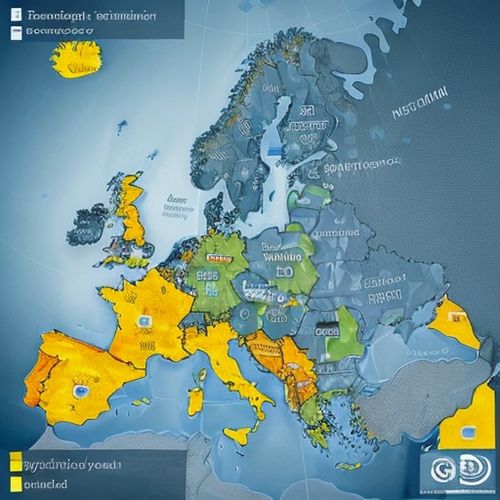Germany's tax system offers unique advantages for married couples, a feature that has attracted both domestic and international attention. The concept of Ehegattensplitting (married couple splitting) lies at the heart of these benefits, allowing spouses to combine their incomes and be taxed as a single unit. This mechanism often results in significant tax savings, particularly when one spouse earns substantially more than the other. While critics argue that this system may discourage workforce participation among secondary earners, proponents highlight its role in supporting family stability and financial planning.
The German tax code recognizes marriage as a fiscal partnership, treating the household rather than the individual as the primary taxable entity. Under this framework, couples can opt for joint taxation, where their combined income is divided equally between both partners before applying the progressive tax rates. This approach effectively lowers the overall tax burden for couples with disparate incomes, as the higher earner's income is partially shifted into the lower earner's tax bracket. For many middle-class families, this can translate into thousands of euros in annual savings.
Beyond income tax benefits, married couples in Germany enjoy several other financial advantages. The spousal inheritance tax exemption allows assets to pass between partners completely tax-free, unlike in many other countries where substantial inheritance taxes may apply. Similarly, gifts between spouses are exempt from gift tax, providing flexibility in financial planning and wealth management. These provisions create a comprehensive system that supports married couples throughout various life stages, from building assets together to passing them on to the next generation.
International couples considering marriage in Germany should pay particular attention to how these benefits interact with their home country's tax laws. Many nations have tax treaties with Germany to prevent double taxation, but the specific implications can vary dramatically depending on each partner's citizenship and residency status. The German system generally extends its marital tax benefits to registered same-sex partnerships as well, following the legal recognition of marriage equality in 2017. However, civil partnerships may have slightly different tax implications that warrant careful examination.
While the tax advantages are substantial, they come with certain responsibilities and potential pitfalls. Married couples must file their taxes jointly to benefit from Ehegattensplitting, which requires careful coordination and documentation. The system also creates what economists call a "marriage bonus" for couples with one high earner and one low or non-earner, but may provide less advantage to dual-earner couples with similar incomes. Some couples find themselves in a "marriage penalty" situation where getting married actually increases their combined tax burden compared to filing as singles.
The political debate surrounding Germany's marital tax benefits continues to evolve. Feminist groups and some economists argue that the current system discourages women from pursuing full-time careers, as the tax savings from having one spouse stay home or work part-time can outweigh the financial benefits of dual full-time employment. Meanwhile, family advocates maintain that these policies recognize the economic value of domestic labor and child-rearing. Recent discussions have focused on potential reforms that would maintain support for families while reducing perceived disincentives for equal workforce participation.
Practical considerations for couples include understanding how these tax benefits interact with other aspects of Germany's social welfare system. For instance, choosing joint taxation can affect eligibility for certain state benefits or influence the calculation of health insurance contributions. Many expatriate couples find that while the German system offers advantages they wouldn't receive in their home countries, navigating the bureaucracy requires careful planning. Professional tax advice often proves invaluable, especially for couples with international elements to their finances or complex asset structures.
Looking ahead, Germany's marital tax benefits remain a distinctive feature of its fiscal policy. As societal norms around marriage and workforce participation continue to change, these policies may undergo further refinement. What remains clear is that for many couples - especially those with traditional single-breadwinner structures or significant income disparities - the financial advantages of marriage under German law can be substantial enough to influence life decisions. The system exemplifies how tax policy can shape not just government revenue, but family economics and social structures as well.

By Eric Ward/Apr 19, 2025

By Sophia Lewis/Apr 19, 2025

By George Bailey/Apr 19, 2025

By George Bailey/Apr 19, 2025

By Grace Cox/Apr 19, 2025

By Natalie Campbell/Apr 19, 2025

By Sarah Davis/Apr 19, 2025

By Michael Brown/Apr 19, 2025

By George Bailey/Apr 19, 2025

By Victoria Gonzalez/Apr 19, 2025

By Christopher Harris/Apr 19, 2025

By Natalie Campbell/Apr 19, 2025

By Sophia Lewis/Apr 19, 2025

By James Moore/Apr 19, 2025

By Natalie Campbell/Apr 19, 2025

By Emily Johnson/Apr 19, 2025

By James Moore/Apr 19, 2025

By Amanda Phillips/Apr 19, 2025

By Emily Johnson/Apr 19, 2025

By Noah Bell/Apr 19, 2025